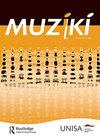The Influence of Foundation Phase Male Teachers on Their Learners: A Musical Perspective
IF 0.8
0 MUSIC
引用次数: 0
Abstract
Abstract The influence of male teachers on Foundation Phase learners needs to be explored to allow for subtle adjustment of programmes in higher education to empower them in a previously female world. When an unusually high entry of male students in a BEd Foundation Phase programme was experienced, adaptations had to be made to the music module to make provision for a tendency to sing in harmony rather than singing the melody and to avoid the influence of biological differences on timbre. With singing being an integral part of childhood education, generalist teachers, who do not have suitable singing abilities and confidence, will find the classroom situation challenging. Confidence is often influenced by the lack of proper singing ability. In addition, traditional African male singers have cultural influences that need to be considered when preparing them as Foundation Phase teachers. The main research question asks: How does an African male voice model impact on the acquisition of singing skills of learners in the Foundation Phase classroom? Literature, questionnaires, observations and interviews contributed to knowledge in this mixed method study using a constructivist paradigm. Findings include that cultural and biological aspects impact African male educators’ singing behaviour, influencing the singing voices of children in their care.从音乐的角度看基础阶段男教师对学习者的影响
需要探索男性教师对基础阶段学习者的影响,以便对高等教育方案进行微妙的调整,使他们能够在以前的女性世界中获得权力。当经历了一个异常高的男性学生进入BEd基础阶段课程时,必须对音乐模块进行调整,以提供和谐而不是旋律的演唱趋势,并避免生物差异对音色的影响。歌唱是儿童教育的重要组成部分,没有合适的歌唱能力和自信的多面手教师会发现课堂环境具有挑战性。缺乏适当的歌唱能力往往会影响自信。此外,传统的非洲男歌手在准备他们作为基础阶段教师时需要考虑文化影响。主要的研究问题是:非洲男声模型如何影响基础阶段课堂中学习者歌唱技能的习得?文献,问卷调查,观察和访谈有助于在这个混合方法研究中使用建构主义范式的知识。调查结果包括,文化和生物学方面影响非洲男性教育工作者的歌唱行为,影响他们所照顾的儿童的歌唱声音。
本文章由计算机程序翻译,如有差异,请以英文原文为准。
求助全文
约1分钟内获得全文
求助全文

 求助内容:
求助内容: 应助结果提醒方式:
应助结果提醒方式:


